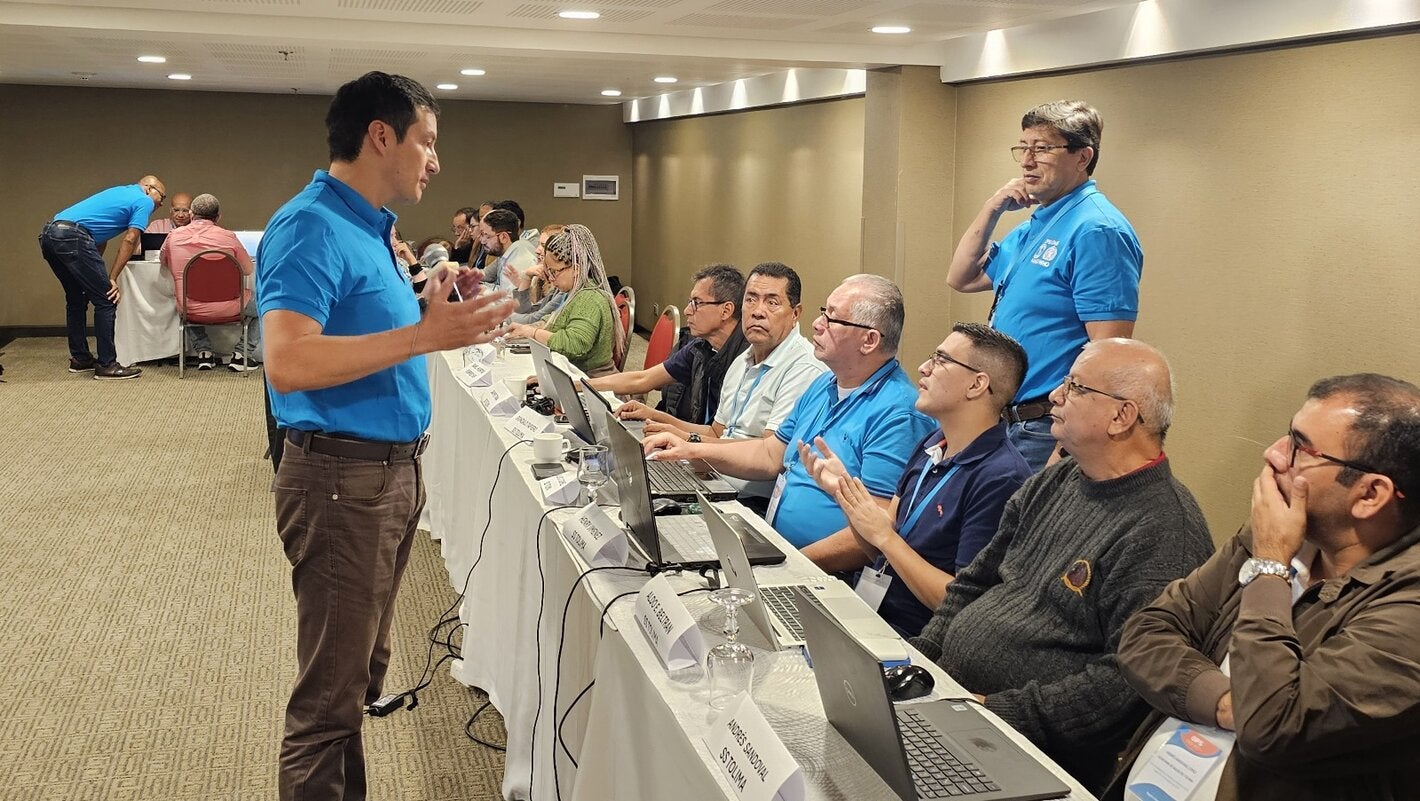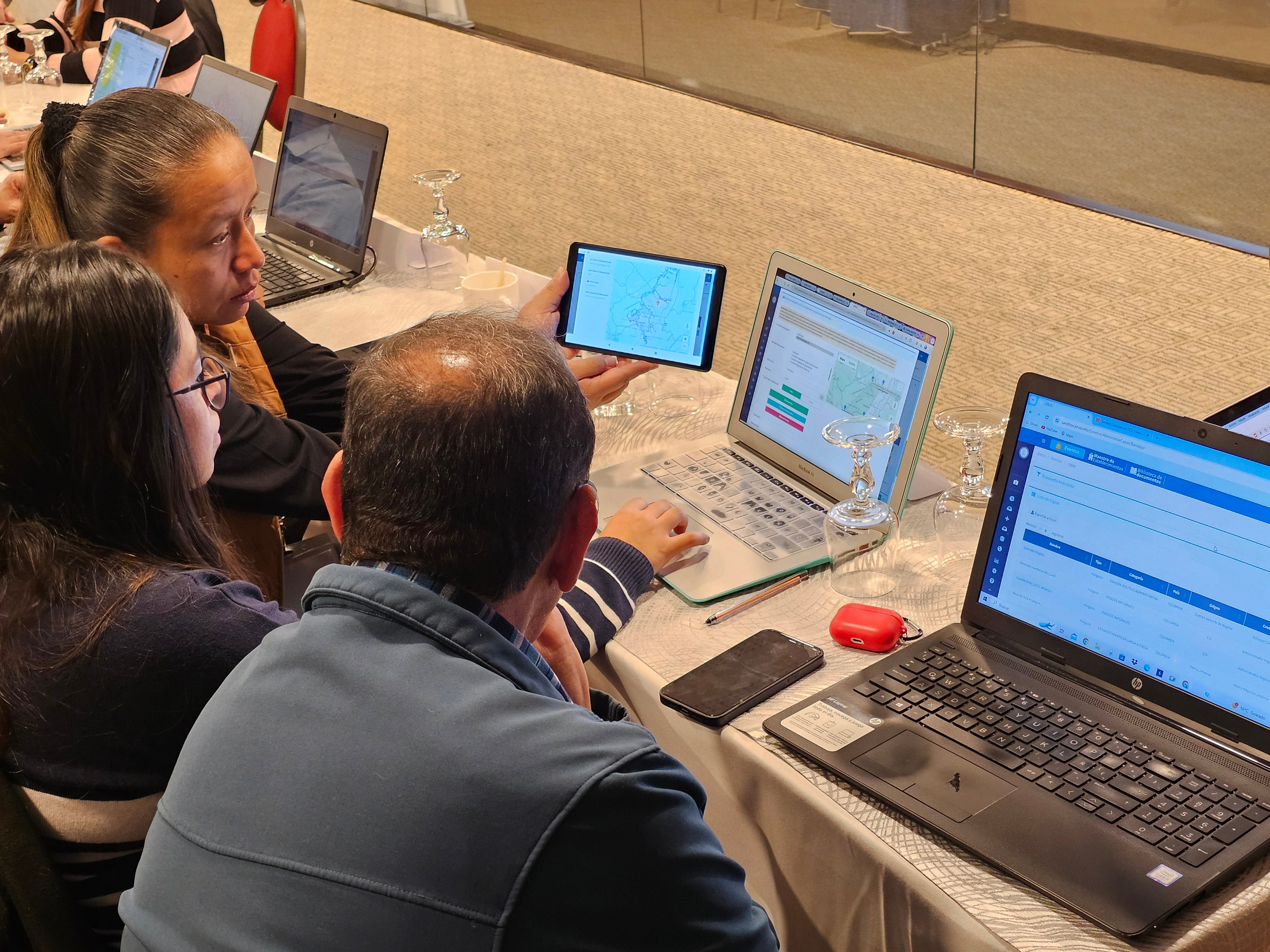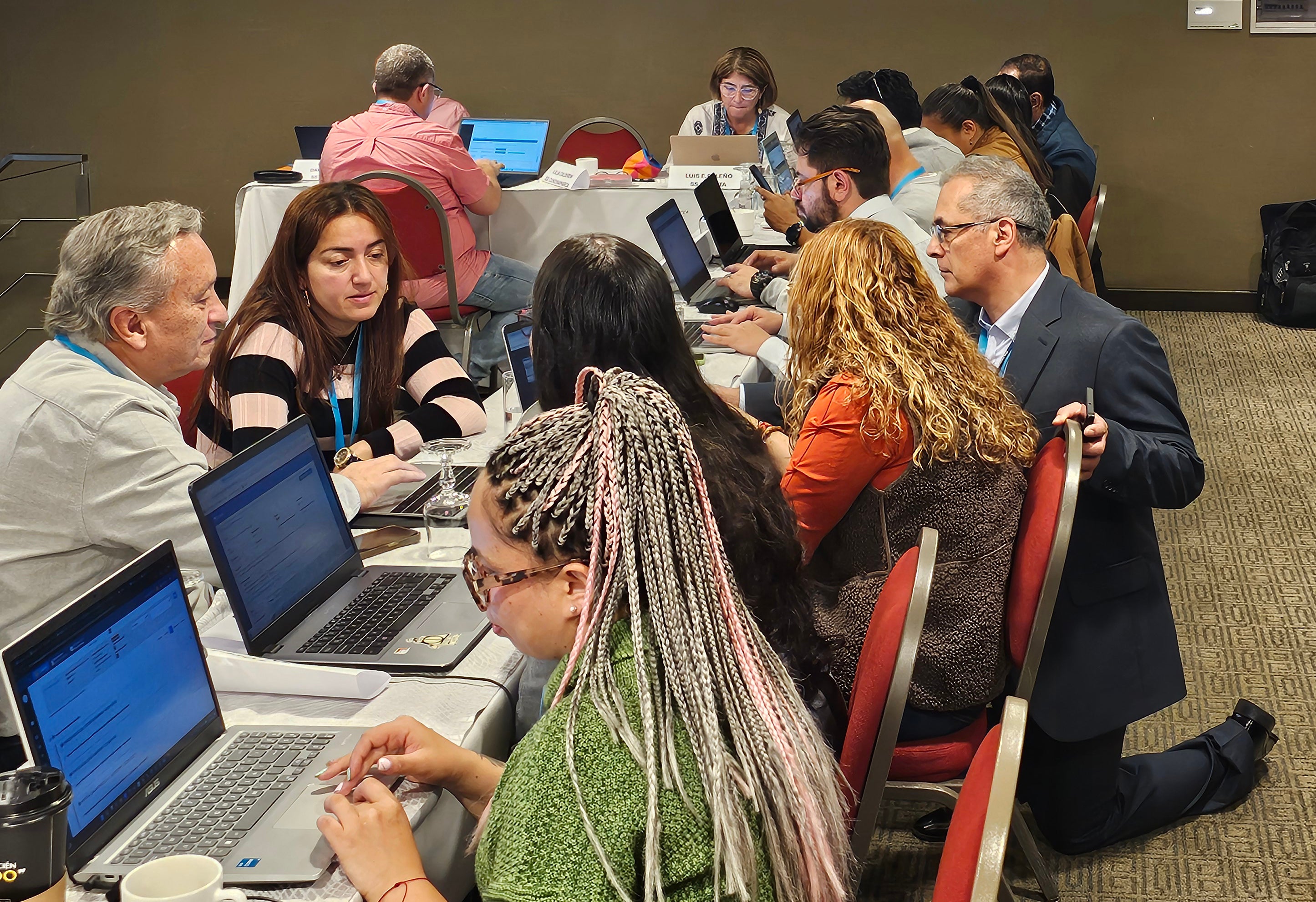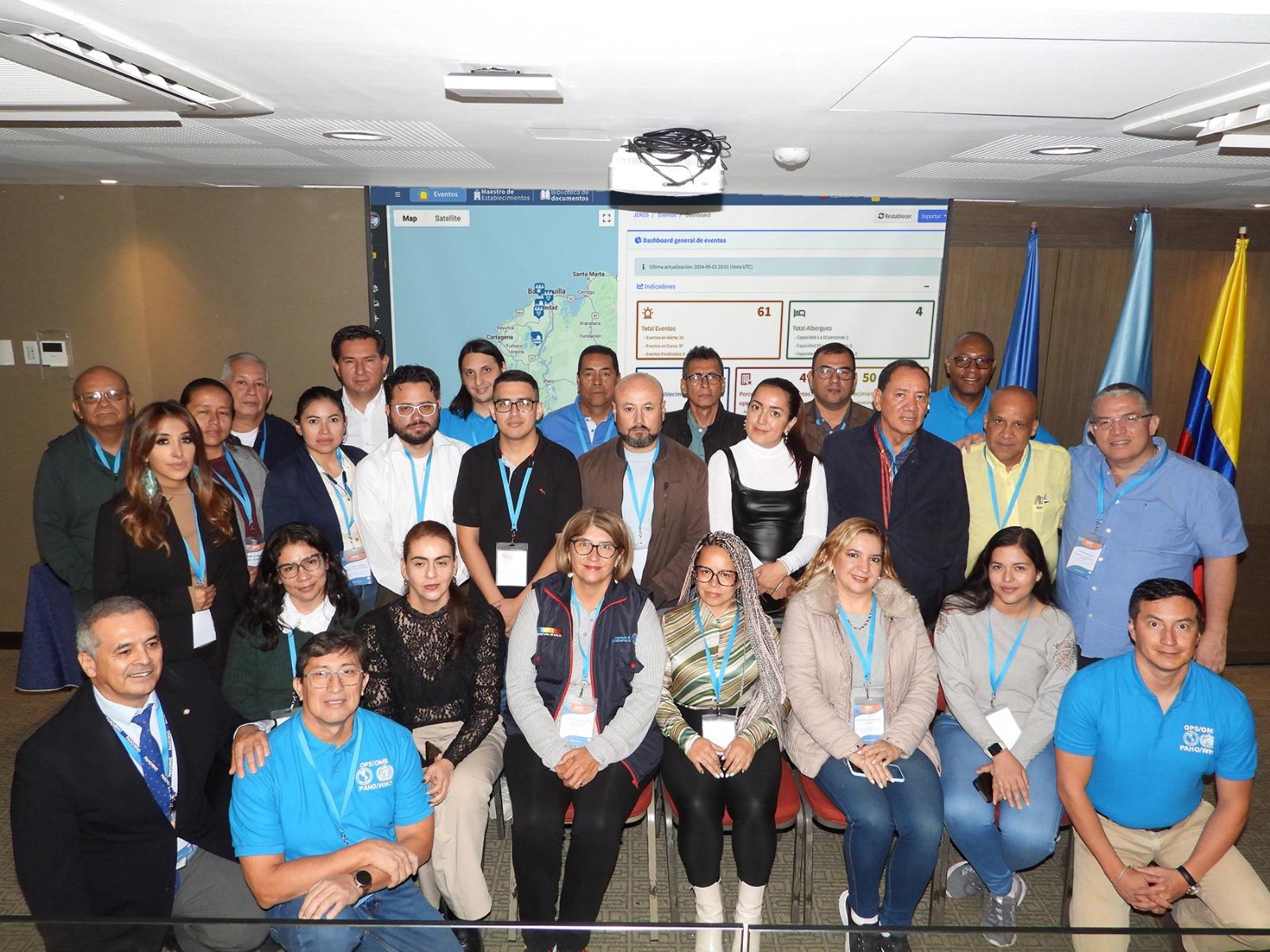
Bogotá, August 30 (PAHO) – The Pan American Health Organization (PAHO/WHO) has taken a crucial step forward in managing health emergencies with the launch of JEROS (Joint Emergency Response Operations System). This collaborative online platform, designed with the help of experts from across the region and with financial support from AECID, aims to facilitate the coordination of operations by health authorities through integrated and centralized management of public health information and emergencies.
The JEROS workshop took place in Bogotá from August 26 to 30, as part of a week dedicated to strengthening coordination mechanisms. During this week, Colombian health authorities participated in intensive training. The training included representatives from the Ministry of Health and Social Protection, officials from the Departmental Health Secretariats of Cundinamarca, Tolima, and Atlántico, as well as the Municipal Health Secretariat of Soledad - Atlántico, the District Health Secretariat of Bogotá, and the National Health Institute.
During the workshop, practical and theoretical sessions were held to familiarize participants with the main functionalities of JEROS, a tool that promises to transform the management of health emergencies. The attendees had previously completed self-instruction through an online learning platform, which was essential to maximize the benefits of the on-site workshop.
The main objective of JEROS is to facilitate efficient information management for national authorities, enabling coordinated responses based on data analysis, both in early warnings and ongoing situations. Victor Ariscain from PAHO Washington’s multimedia team noted, “We were very pleased to hear the positive feedback from participants during the recent workshop. It is especially encouraging to know that they are willing to start using the tool we presented, which is a unified system that ensures all relevant actors work with the same set of data and under the same evaluation criteria, which is crucial for effective coordination of efforts.”
The platform is being tested in several countries, including Ecuador and Colombia, where its pilot phase implementation has shown promising results. Among the main advantages offered by JEROS are:
Efficient information management: The application consolidates data from a variety of sources, providing a complete picture of the situation, from infrastructure assessments to public health statistics.
Preparedness and planning: JEROS allows to assess the level of preparedness of health facilities and other critical resources prior to a catastrophic event.
Updating data in health facilities: It allows information to be updated and improves knowledge of the capabilities of the hospital network, which is crucial for an effective response in emergency situations.
Rapid response to emergencies: The platform facilitates situational analysis and geographic location in order to provide rapid and efficient mobilization of resources, optimizing medical assistance or pre-hospital care or rescue efforts.
Real-time monitoring: JEROS enables rapid real-time assessments, improving resource allocation according to changing conditions.
Customized reports: The ability to generate reports tailored to different decision-making levels facilitates more accurate, information-based operations.
Historical archive: Data collected during the emergency becomes a valuable historical record for future planning.
API connectivity: Integration with other tools and systems, such as dashboards generated in R using the Shiny library, expands the possibilities for further analysis.
Standardization and uniformity: JEROS ensures that all relevant actors work with the same data and evaluation criteria, which is essential for effective coordination.
The success of JEROS' testing and its presentation in Bogota represents a significant advance in public health emergency response capacity in the region. PAHO/WHO will continue to support countries in the implementation and expansion of this tool, seeking to strengthen emergency preparedness and response throughout the continent.






